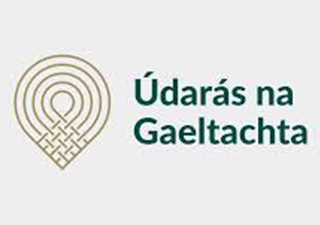Thursday, 4 November 2021
This Memorandum of Understanding recognises the responsibilities that both Údarás na Gaeltachta and LYIT have in delivering on national and regional policy objectives and both organisations wish to further develop their capacities to achieve their respective missions via enhanced cooperation through this MoU. The initial aims of the partnership are consistent with Údarás na Gaeltachta’s Strategic Plan 2021 - 2025 and LYIT’s Strategic Plan 2019 - 23. Both organisations aim to work to develop remote working opportunities through the gteic network and CoLab. The promotion of sustainable economic development and job creation by working with stakeholders to address their various education and training needs is at the strategic core of both organisations.
This agreement further enhances the close working relationship that has been built up between Údarás na Gaeltachta and LYIT over the years. Both bodies are leaders in pursuing national policy objectives in relation to regional development with a specific focus on the Irish language. Both bodies will continue the development of strategic international partnerships particularly through the Donegal Diaspora initiative and the Gaeltacht Diaspora Initiative.

LYIT President Paul Hannigan spoke of the formal arrangement:
“We are delighted to be formally recognising our engagement with Údarás na Gaeltachta through this MoU. Our partnership spans many years and previously as a long-standing member of our Governing Body. We look forward to the future as we move towards Technological University (TU) status.”
Údarás na Gaeltachta’s Chief Executive Officer Mícheál Ó hÉanaigh added:
“We are pleased to place on official record this memorandum of understanding between our organisation and LYIT, both organisations are committed to ensuring Gaeltacht life and the Irish language will be safe for generations to come. Our working relationship over the years has flourished and we hope to further enhance that as we move forward and work strategically together on regional development and the Irish language.”
The MoU will support the further development of the local education infrastructure to enhance the region’s reputation as a leading location for education provision and develop the region’s capacity for research and innovation. It will also promote and support entrepreneurship, investment and enterprise.